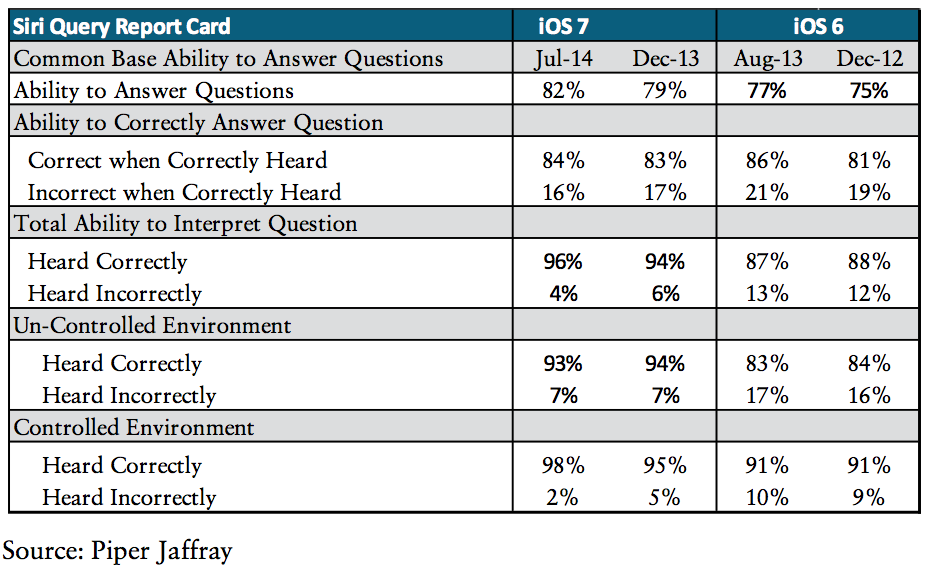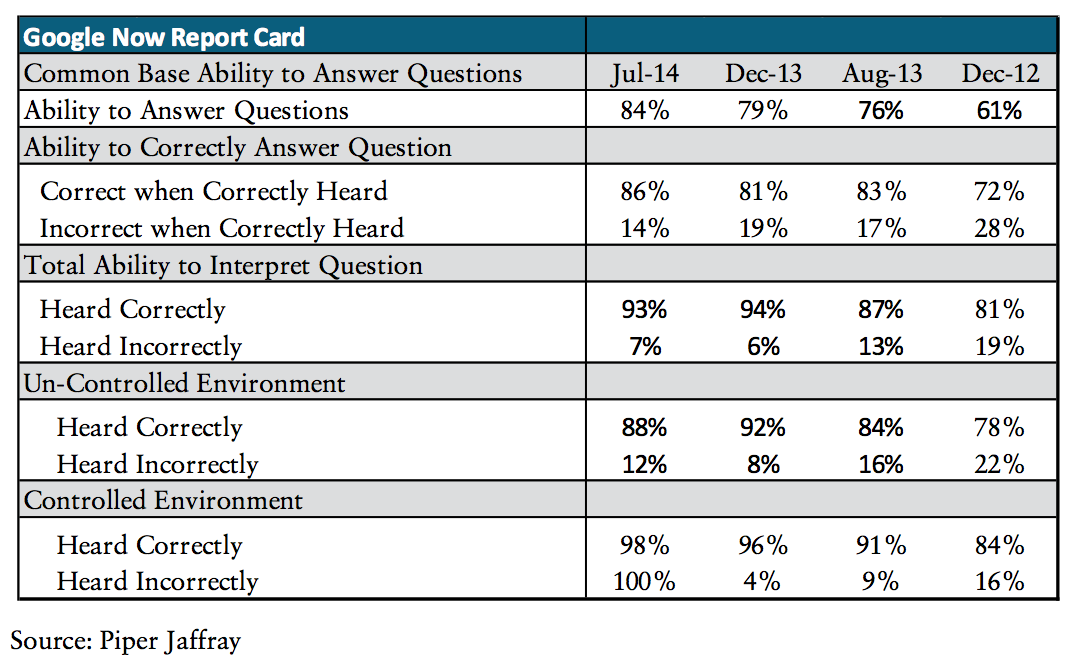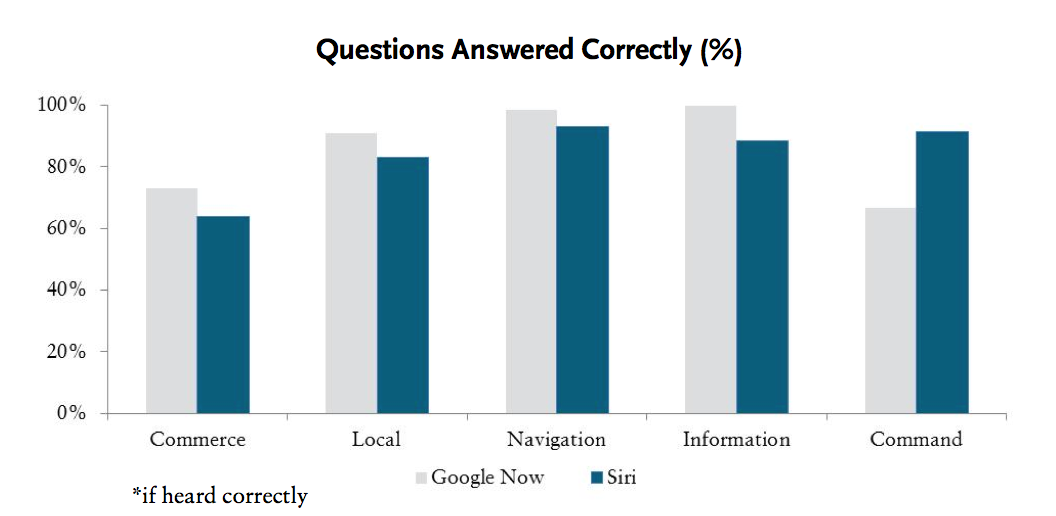The comprehension abilities of Apple's voice-driven personal assistant Siri continue to get better, but new testing shows that using Google Now for searching on Android has surpassed it in terms of accuracy when answering queries.
Analyst Gene Munster of Piper Jaffray did a side-by-side comparison of Apple's Siri and Google Now this month, and the results of those tests were shared with AppleInsider in a new research note on Tuesday. He found that the Android voice search function correctly answered questions 84 percent of the time, barely edging out Siri, which was 82 percent correct.
Both platforms have seen major improvements in comprehension levels. In particular, Siri was found this month to correctly interpret questions 96 percent of the time, up from an 88 percent accuracy rate in tests conducted in December of 2012.
But there's still a disparity between correctly hearing the question and correctly answering it. When Siri heard the question correctly, it still provided the wrong answer 16 percent of the time.
Last December, Munster ranked Apple's Siri with a grade of "C+", which at the time was even with his assessment of Google Now. But in his latest July rankings, while Siri improved to a "B-", Google's search was given a slightly better grade of "B".
Munster's tests also found that Siri has continued to reduce its reliance on Google, and answered just 3 percent of questions using data from the search giant. That's down considerably from the 27 percent for which it relied on Google in December of 2012.
Apple has moved away from Google Maps, and also uses Microsoft's Bing as its default search provider for traditional Web content. Apple Maps has taken over not only for Google, but also for most Yelp content.
"We believe Siri will continue increasing the number of queries it can answer without consulting outside sources," the analyst wrote. "This is important because if Siri consistently directs users to other search engines, they will be more likely to simply use Google/another search engine instead of going through Siri."
Most notably for Munster, Siri has gained the ability to answer questions using two sources at once. In one example, he asked "Where is Mt. St. Helen?", and the personal assistant provided information from both Apple Maps and Wikipedia.
In the past, Google Now has had an advantage over Siri because it uses Google Search, Google Maps, and Google Play together to provide an integrated and comprehensive answer to queries," Munster said. Siri is catching up on this front."
In terms of improvements that Apple could make, Munster noted that Siri does not sort search results by price or hours of availability. Google Now, however, gives users the ability to filter results based on price, location, rating and hours.
Siri does give the ability to sort results based on Yelp ratings, or distance.
Munster's testing was done in both a controlled environment, simulating minimal background noise that a user might experience when using their smartphone indoors, as well as an uncontrolled environment. In the uncontrolled test, background noise was kept at about 80 decibels.
 Neil Hughes
Neil Hughes








-m.jpg)






 Charles Martin
Charles Martin


 Wesley Hilliard
Wesley Hilliard
 Stephen Silver
Stephen Silver
 William Gallagher
William Gallagher

 Marko Zivkovic
Marko Zivkovic








41 Comments
I could see with the latest IBM deal that Watson (GoAT Jeopardy champ) has joined team Apple, and its technology might start coming to Siri some day.
The last graphic seems to give Google Now the edge in most cases, but with the caveat that the data only reflects situations where the question was heard correctly. Now if you look at the July 2014 data about correct comprehension in an uncontrolled environment for both services (the only thing most of us experience....) the comprehension rate of Siri is significantly higher. Google Now misunderstands the question 71% more often than Siri. How is that not considered huge and why isn't it a main point of the article?
Think the Google Now Report Card needs an error correction - Heard Incorrectly in a Controlled Environment 100% of the time?!
I wonder when Siri will get offline processing. That would be nice.
I'm not sure I understand the top row of the table.
Google Now:
93% correctly heard * 86% answered correctly when correctly heard = 79.98% correctly answered overall
Apple Siri:
96% correctly heard * 84% correctly answered when correctly heard = 80.64% correctly answered overall
So Siri, despite being a bit flaky on answering questions correctly, still wins overall. And it's a bigger advantage to Siri if you only use the un controlled environment percentages.
How have Piper Jaffray calculated their "Ability to answer questions"?